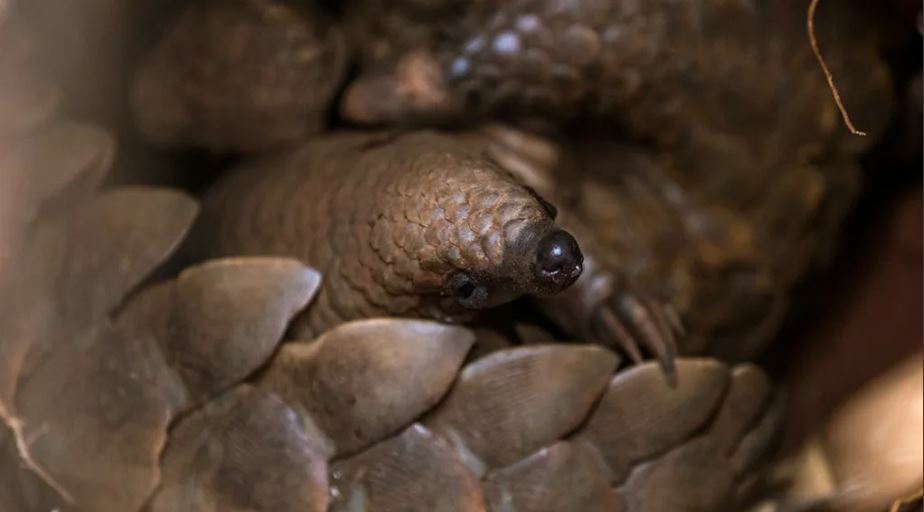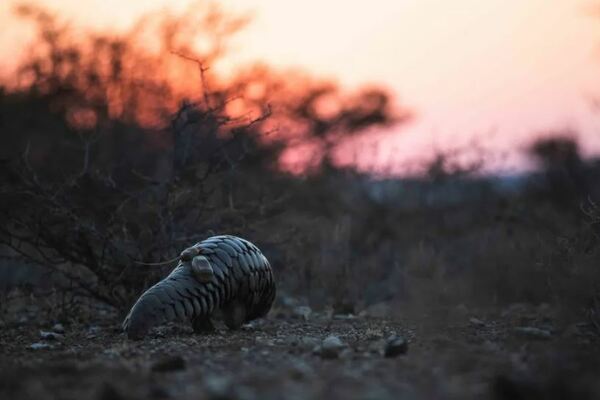
In 2021 we supported the work of African Pangolin Working Group (APWG) - an NGO established by Professor Ray Jansen in South Africa more than a decade ago.
The funds we donated were specifically used for telemetry equipment which help to monitor pangolins rescued from the illegal wildlife trade, and rehabilitated for release back to the wild.
Tracking pangolins enables researchers to discreetly monitor movements and ensure the animal is safe, while camera traps help to build up a more detailed picture about daily life and activities.
Ally
Ally is a Temminck’s pangolin, one of eight species of pangolin worldwide. Temminck's pangolins are found in the woodlands and across savannah in Eastern and Southern Africa. They are also known as 'ground' pangolins as they do not climb trees like other species but live entirely on the ground.
Ally's story begins in April 2020 when she was found dehydrated, underweight, and severly traumatised by the South African Police Service (SAPS) Endangered Species Unit in the Alldays region of Limpopo Province.
Ally had been a victim of the Illegal Wildlife Trade. Over a million pangolins are thought to have been trafficked worldwide in the last decade. Pangolins are taken alive from the wild, sold by the ton, frozen and transported by land and sea to the Far East where their flesh and scales are sold for human consumption.
Pangolins are very easily stressed and the ordeal of being poached can often be too much.
In Ally's case, she was suffering from pneumonia. A scan revealed that she was also pregnant with a pup.
She was very carefully treated and monitored at the Johannesburg Wildlife Veterinary Hospital. One of the challenges is feeding - pangolins only eat live termites and ants that they find themselves - you can't hand-feed a pangolin. Thankfully after a few days under careful supervision Ally was strong enough to do a little foraging and by the middle of May was ready for release.
The team, led by APWG's field manager Francois Meyer, selected a release site in Limpopo, established camera traps around the area and fitted Ally with a tracking device.
There have been very few opportunities to study pregnant pangolins so the vet team was unsure of exactly when the pup would be born but they did know that getting Ally back to the wild would be the best chance for both her, and her pup.
You can imagine the joy when the team first saw Ally, caught on one of the camera traps in August, with her pangolin pup, Pod on her back. This is the first time a pangolin has been recorded giving birth to a pup in the wild after being rescued from the trade, rehabilitated and released.
An incredible success story.
Pod
The team continued to discreetly monitor both Ally and her pup Pod using both telemetry and camera traps.
The pair thrived in their new home in Limpopo and provided a wealth of information for researchers. Pod grew strong and healthy and within a year he was ready to leave his mother and go off on his own.
After Pod's departure, camera trap footage revealed a new wild pangolin visitor. Watch the film to find out more..
Images: Francois Meyer APWG - Ally; Ally and pup




